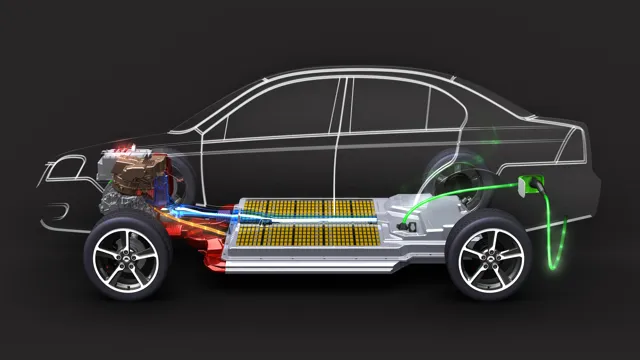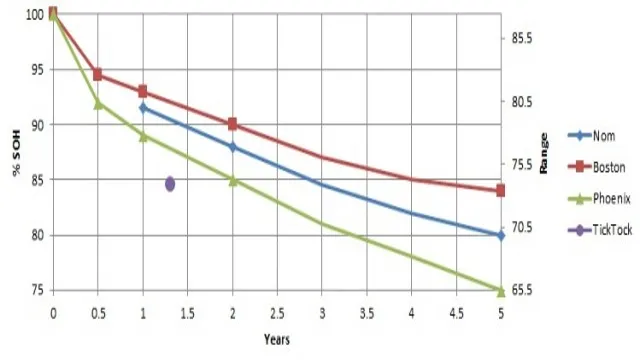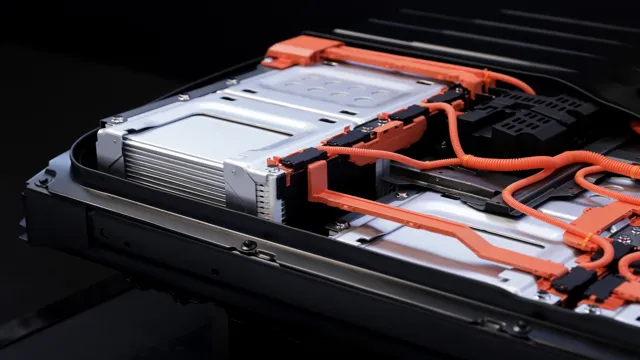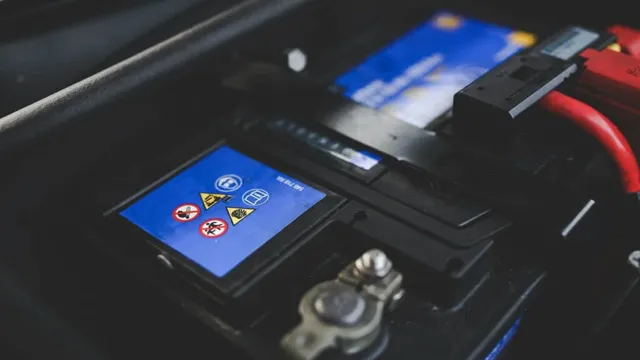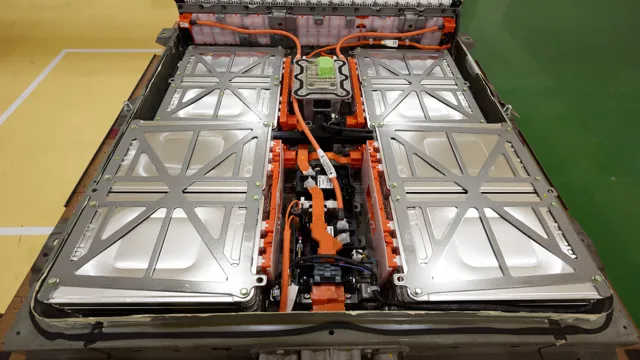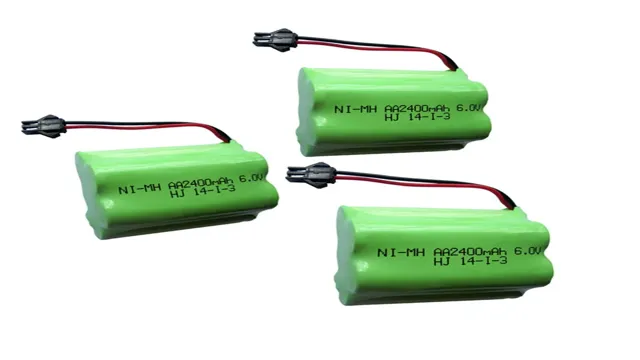The Shocking Truth About the Lifespan of Your Electric Car’s Battery
Electric cars are a rising trend in the automotive industry, and for a good reason. These eco-friendly vehicles are battery-powered, which means no more trips to the gas station. But have you ever wondered how the electric car battery works, and what makes it so different from the traditional gas-powered car’s battery? In this blog post, we’ll take a deep dive into the world of electric car batteries and discover how they power your ride.
Get ready to be amazed at the intricate workings of the electric car battery and learn how it’s changing the way we think about transportation.
Understanding Electric Car Batteries
The battery of an electric car is a crucial component that powers the vehicle and stores energy. Electric car batteries come in different sizes and functionalities, but the most common type is the lithium-ion battery. These batteries are durable and have a high energy density, which means they can store large amounts of energy in a small space.
They are also widely available and can be recycled. However, electric car batteries have a limited lifespan and may lose their storage capacity over time. To ensure the longevity of the battery, it’s important to maintain and charge it regularly.
Additionally, electric car batteries require specific charging infrastructure, which may limit the availability of charging stations. Despite these challenges, the rapidly advancing technology of electric car batteries makes them a promising alternative to traditional gasoline-powered cars.
How they work
Electric car batteries are complex and sophisticated pieces of technology that help power electric vehicles. They function by converting stored chemical energy into electrical energy, which is then used to power the car’s motor. These batteries come in different sizes and shapes, but they all work on the same basic principles.
They have a positive and negative electrode separated by an electrolyte, and when the battery is charged, ions from the positive electrode move through the electrolyte to the negative electrode, creating a flow of electrons that can power an electric motor. These batteries are rechargeable and can be charged using different methods such as public charging points or home charging stations. They are also modular and can be added or removed as needed to provide more or less range.
Understanding how electric car batteries work is essential for making informed decisions about buying electric vehicles and taking care of them.
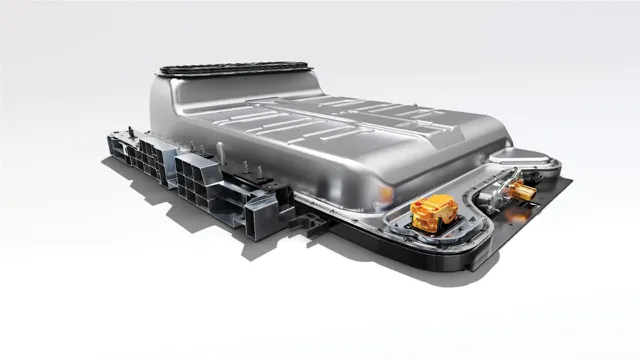
Types of batteries available
Electric car batteries come in different types, each with its own set of advantages and disadvantages. The most common battery type used in electric vehicles is lithium-ion. This type of battery is known for its high energy density, low self-discharge rate, and long lifespan.
However, they are expensive to manufacture and contain flammable electrolytes. Another type of battery commonly used is the lead-acid battery, which is less expensive but has a shorter lifespan and lower energy density than lithium-ion batteries. Nickel-metal hydride batteries, on the other hand, are more environmentally friendly but have lower energy density and are still relatively expensive to manufacture.
Understanding the different types of electric car batteries available is important when choosing an electric vehicle that meets your specific needs and budget.
Life expectancy
Electric Car Batteries Electric cars are taking the automotive world by storm, and with good reason. They’re eco-friendly, cost-effective, and they don’t require any fuel, just electricity. However, one of the most significant concerns among potential electric car owners is the life expectancy of their batteries.
While some believe they will have to replace their batteries after just a few years, others believe they’ll last a lifetime. The reality is, it all depends on how you use them. If you take good care of your electric car battery and keep it charged regularly, it can last anywhere from 8 to 10 years.
Of course, this also depends on how much you use your car, as the more you use it, the more your battery will wear out. Think of it this way: an electric car battery is like a rechargeable battery you use in your phone or mp3 player. Over time, as you use your phone or mp3 player battery, it gradually wears down, and eventually, you have to replace it.
The same thing applies to electric car batteries. Therefore, it’s important to be mindful of how much you’re using your car and how you’re charging it. Follow the manufacturer’s recommendations for charging your car, and don’t let your battery run out completely as this will cause it to wear out faster.
If you take good care of your electric car battery, you can enjoy driving your eco-friendly car for many years to come.
Choosing the Right Battery for your Electric Car
When it comes to electric cars, one of the most important components is its battery. With the right battery, you can get the maximum range, performance, and durability out of your vehicle. But how do you choose the right battery for your electric car? First and foremost, consider the size of your car and the range you need.
The larger the car, the larger the battery you’ll need to provide enough power. Next, consider the energy density and chemistry of the battery. Lithium-ion batteries, for example, are widely used in electric cars due to their high energy density and long lifespan.
Additionally, consider the charging time and infrastructure available in your area. Some batteries may require longer charging times or special charging equipment. Ultimately, selecting the right battery for your electric car requires a balance of size, power, and practical considerations.
Considerations when choosing
When choosing the right battery for your electric car, there are a few factors you should consider. The first and most important is the range of the battery. You need to make sure that your battery can go the distance you require, without needing frequent recharging.
Another crucial factor is the charging time. You want a battery that can charge quickly and efficiently, so you don’t have to wait around all day just to get to your destination. The durability of the battery is also important, as you want a battery that can withstand wear and tear for years to come.
Finally, it’s essential to consider the size and weight of the battery, as this can affect the overall performance and handling of your vehicle. With these factors in mind, you’ll be able to choose the right battery for your electric car and ensure that you can drive with confidence.
Factors that affect battery performance
Choosing the right battery for your electric car is crucial for optimal performance. There are several factors to consider when selecting a battery, including the type of battery, its capacity, and its charging time. Lithium-ion batteries are the most common type of battery used in electric cars due to their high energy density, efficiency, and relatively low weight.
However, they can be expensive compared to other types of batteries such as lead-acid. The capacity of the battery is also important, as it determines the range of the vehicle. It’s important to select a battery with enough capacity for your driving needs.
Charging time is another critical factor to consider. Some batteries may take longer to charge than others, and it’s essential to choose one that fits with your lifestyle and charging needs. By carefully considering these factors, you’ll be able to select the right battery for your electric car and enjoy optimal performance on the road.
Sizing your battery
Choosing the perfect battery for your electric car is crucial for a smooth ride. The size of your battery is determined by the range you require, your budget, and your charging needs. The battery is the heart of your electric car, and it is an expensive component, so it’s important to choose the right one.
The size of your EV battery is measured in kilowatt-hours (kWh), which indicates how much energy it can store. Generally, larger batteries offer more range, but they also come with a hefty price tag. When selecting your battery size, consider factors like how far you need to drive, how frequently you drive, and if you will have easy access to charging stations.
Keeping these factors in mind will help you choose the right battery for your electric car, ensuring a comfortable and safe ride every time.
Maintaining Your Electric Car Battery
When it comes to maintaining the battery of an electric car, there are a few things to keep in mind. One important factor is temperature – extreme heat or cold can negatively impact the battery’s lifespan. It’s a good idea to park your electric car in a garage or shelter during harsh weather conditions.
Another way to ensure your battery’s longevity is to avoid letting it fully discharge or charging it to 100% on a regular basis. It’s best to keep the battery level between 20-80%. Additionally, regularly updating your vehicle’s software can help optimize the battery’s performance.
Taking these steps can not only extend the life of your battery but also help you save money in the long run. So, take care of your electric car’s battery, and it’ll take care of you for many miles to come.
Dos and don’ts of battery care
Maintaining your electric car battery is essential for maximizing its lifespan and ensuring optimal performance. To keep your battery in top condition, there are a few dos and don’ts to keep in mind. Firstly, do keep your battery charged regularly, ideally to between 20% and 80% capacity, and avoid letting it drop below 20%.
Overcharging beyond 80% can also harm the battery, so try not to leave it plugged in for too long. Additionally, don’t leave your electric car parked for extended periods without charging, as this can cause the battery to degrade more quickly. It’s also crucial to avoid exposing the battery to extreme temperatures – both high and low – as this can also have a negative impact on its performance.
Following these battery care tips will help ensure your electric car is running smoothly and efficiently for years to come.
Charging and discharging
Maintaining Your Electric Car Battery One of the most important aspects of owning an electric car is properly maintaining the battery. Charging and discharging the battery correctly is essential to ensure that your electric car’s battery has a long life and maintains its maximum driving range. It’s important to charge the battery according to the manufacturer’s instructions and to avoid overcharging the battery.
Overcharging can damage the battery and shorten its life. Similarly, discharging the battery too much, or running it to empty, can also cause damage and reduce its capacity over time. To extend the life of your electric car battery, it’s recommended to keep the battery charge level between 20-80%.
This can be accomplished by charging the battery before it falls below 20% and unplugging it before it reaches 80%. By following these simple steps, you can maintain your electric car battery and enjoy long-lasting, trouble-free driving.
The Future of Electric Car Batteries
The battery of an electric car is a crucial component that determines its range, performance, and cost. Currently, most electric cars use lithium-ion batteries, which have shown significant progress in recent years. However, researchers are continuously exploring ways to develop even better batteries that offer longer range, shorter charging times, and increased safety.
One promising innovation is the solid-state battery, which utilizes a solid electrolyte instead of a liquid one. This type of battery is more energy-dense, meaning it can store more energy in the same size and weight as a lithium-ion battery. Another exciting development is the use of new materials like graphene and silicon, which have the potential to improve battery efficiency and reduce costs.
Manufacturers are also investing in recycling and reuse programs to reduce the environmental impact of battery disposal. While there is still much work to be done, the future of electric car batteries looks bright, with new technologies and materials promising significant improvements in efficiency, range, and cost.
Conclusion
In conclusion, the battery of an electric car is like the heart of the vehicle. It pumps energy through the car’s veins, powering it on the road. Just as a strong heart is essential for a healthy body, a reliable and efficient battery is crucial for a high-performance electric car.
So, let’s continue to charge forward towards a greener future, powered by the beating heart of electric vehicles.”
FAQs
What is the average lifespan of a battery in an electric car?
The average lifespan of a battery in an electric car is around 8 to 10 years.
How long does it take to fully charge the battery of an electric car?
The time required to fully charge an electric car battery depends on the type of charger and the battery size. On average, it takes 8-12 hours using a Level 2 charger.
Can I replace the battery in my electric car?
Yes, you can replace the battery in an electric car. However, it can be a costly affair, and not all models have a replaceable battery.
What is the range of an electric car with a fully charged battery?
The range of an electric car with a fully charged battery varies from model to model. On average, it is around 100-250 miles, depending on the battery size and driving conditions.

